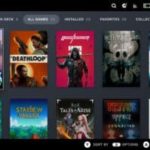The Meta Avatars graphics update Mark Zuckerberg teased was concept tech art.
Zuckerberg faced widespread ridicule on social media last week after posting a selfie from Horizon Worlds showing a crude, graphically simplistic avatar – his current Meta Avatar. Current consumer headsets lack built-in face tracking sensors, so VR avatar system designers tend not to show too many untracked details, since it could either convey an expression the user isn’t making, or a neutral expression that appears lifeless. Further, VR avatar systems are typically designed to look good inside a headset driven in real time by head and hand tracking – not in a 2D screenshot.
The Meta CEO responded to this ridicule last Friday with an image teasing graphical updates “coming soon”:
![]()
But a LinkedIn post reveals this was proof-of-concept tech art rather than a screenshot of a new avatar system. It was made by Meta 3D Character Artist Dylan Dunbar. Dunbar described creating Zuckerberg’s new avatar “from scratch”.
“Sculpted, modeled, lit, textured, and rendered in real time in a little under 4 weeks […] We went through probably 40 iterations in that time before landing on something we were happy with”, the post explains.
To be clear – this isn’t just an aspirational baked render. That’s why we’re referring to it as “concept tech art” – the avatar shown is, according to Dunbar, being rendered in real time, but he doesn’t state on what hardware.
In a leaked company-wide memo from June, Chief Product Officer Chris Cox wrote “on Avatars, we need to finalize our new art style“. Meta plans to introduce eye tracking and face tracking in Quest Pro, launching in October. It’s unclear what the graphics update to Meta Avatars will really look like when driven by Quest Pro, nor how the extra detail will translate to avatars driven by Quest 2, which lacks those sensors.




